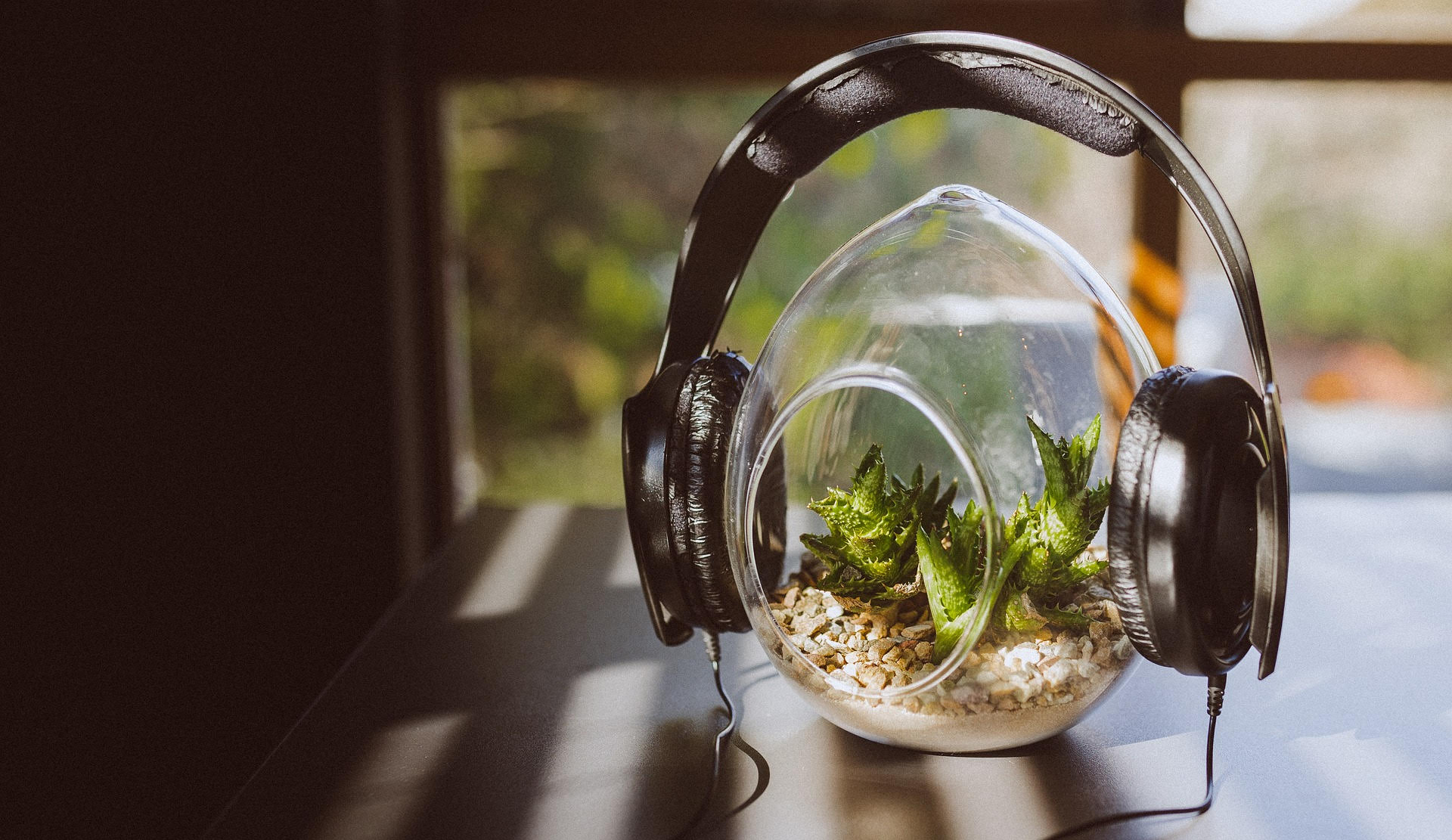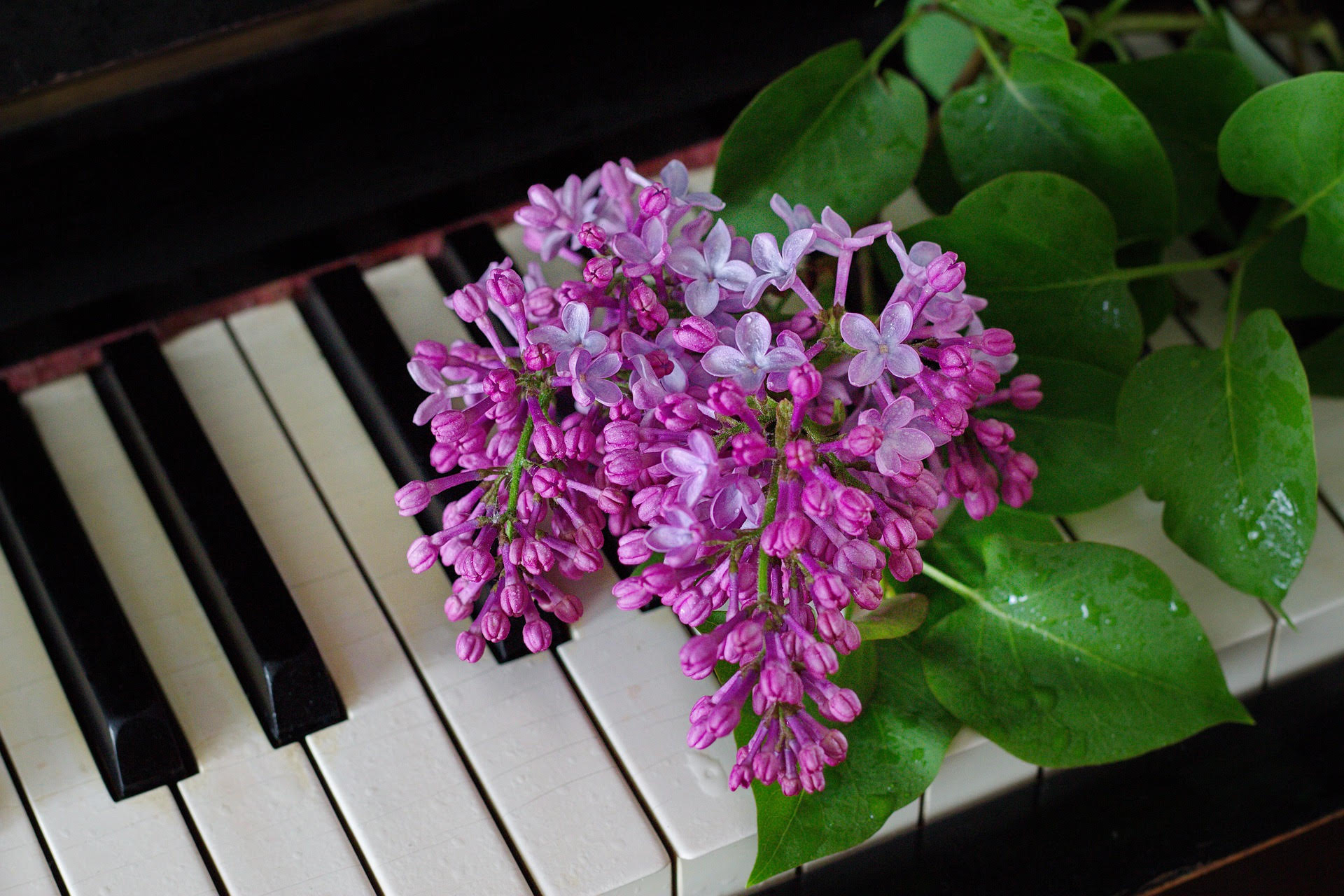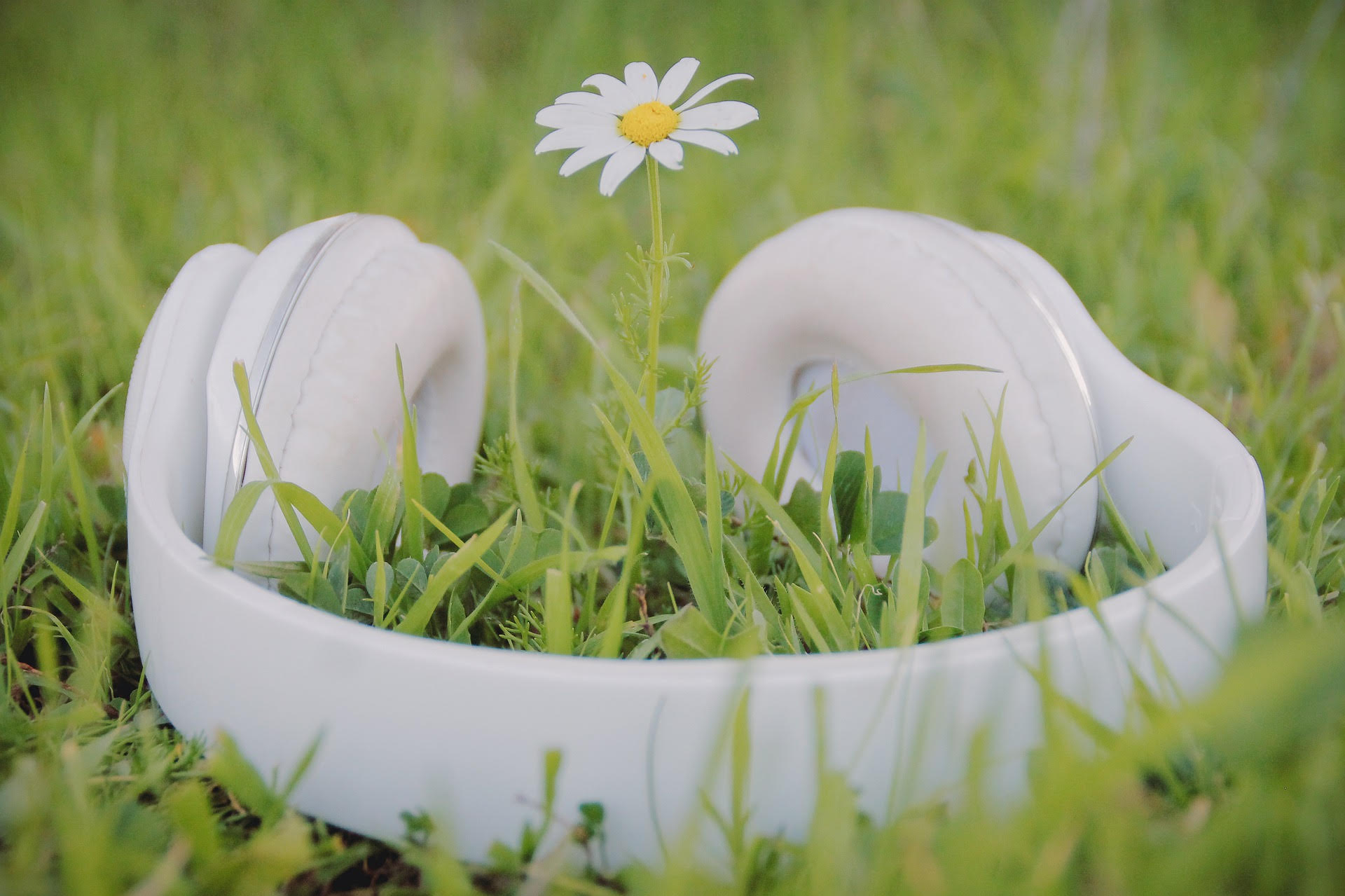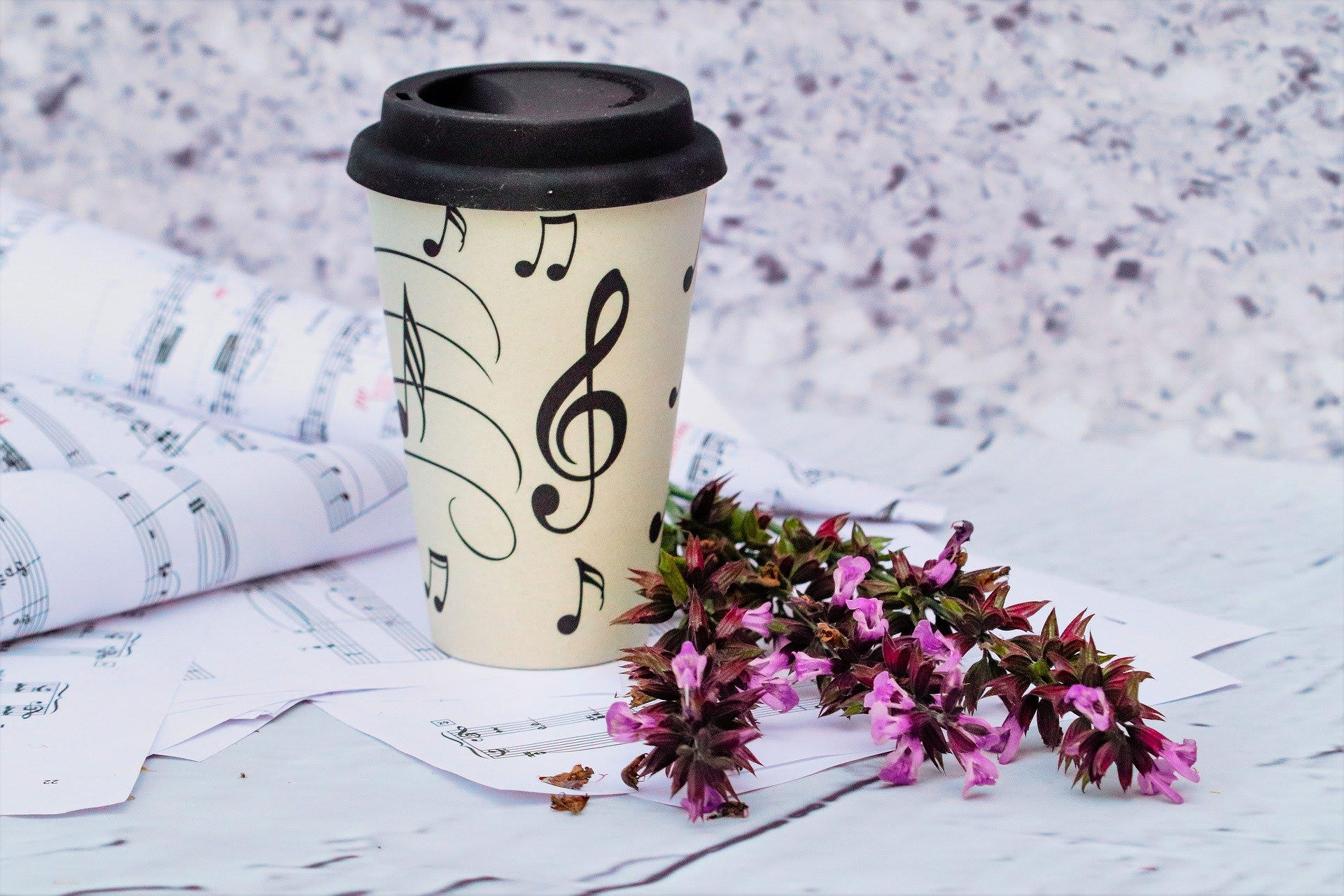 Loading... Please wait...
Loading... Please wait...Save Money. Grow Your Own!
Fast Plain Box Shipping.
We ship to the US & Canada.
Grow Your Own!
How To Grow 72% Bigger Plants With 432 HZ Classical Music
Posted on 14th Jun 2021
Music for Plants – Which Genre Yields More?
You won’t believe your ears. And we really mean that.
Did you know that playing music for plants once boasted 20% more height and 72% additional biomass? This was proven in 1962 by Dr. T.C. Singh, Head of the Botany Department at India’s Annamalai University.
Luther Burban, an American Botanist and Horticulturist, did similar experiments that compliment these findings. He found 20 sensory attributes in plants that could do more than just absorb light. It’s possible to process other senses beyond photosynthesis and alter growth.
Here’s the part where it gets good. It’s the part where all you growers are going to want to listen up. In 2016-2017, a research team from the Negros Oriental Montessori International School took this topic further. Certain types of music, such as classical or rock, were found to alter the growth patterns in astounding ways.
But where does this fit in with your grow at home? We’re going to review this music for plants study a bit more in depth, then explain how you can translate these results into a home grow. Ready to improve your yield in ways you never knew possible?
Keep reading.

What was the Goal of this Music for Plants Study?
This team of researchers wanted to look further into genre music for plants and the effects on growth. If the plants respond to the ways in which they are cared for, and their sensory preceptors affect growth, then how do they react to waves of music? Will there be a significant difference to quiet the naysayers?
Has It Been Proven Before?
The study highlighted examples that proved their thesis to be correct before testing it. Paradiso di Frassina in Tuscany, Italy has been using classical music in their vineyards to improve growth with success. There are still naysayers but such is life. The Negros Oriental Montessori International team set out to prove a point.

They were hoping to enforce the findings of the Paradiso. Fortunately, they wouldn’t be alone. A wine estate in Stellenbosch, South Africa, had luck with similar techniques. They began using baroque music to help the process of ripening their plants. It also was found to help the fungi and bacteria in the soil, ultimately promoting growth as well. The vines were healthier as a whole. Something about music seems to help the plants thrive in ways one wouldn’t expect.
Here is another example cited by the research team in their article.
The U.K.’s Telegraph website released an article in 2007 with some interesting findings. Mi-Jeong Jeong of the National Institute of Agricultural Biotechnology in Suwon, South Korea and a research team dug deep. They proved that playing classical music such as Beethoven improves the speed of plant growth.
Their study was done using 14 different rice plants. Music was played while the team monitored gene expression. They wanted to know exactly what was happening during the songs that influenced accelerated growth. It was discovered that certain frequencies, such as 12hz and 250hz, made certain genes active whereas 50hz did the opposite. To be certain it had nothing to do with light, the team ran the experiment in the dark with the same results.
A 2015 article by Don Robertson followed up on this. A constant tone was played in order to test the results. Throughout three chambers, different variations of the tone were used to compare. The first chamber had a steady tone for 8 hours. The second was an intermittent tone for three hours at random. The third had no tone at all in order to represent a control factor.
What were the results?
The plants in chamber one died within 14 days. The constant tone of music killed them. Possibly from overstimulation. The second chamber showed that the plants grew immensely with wonderful results. The final chamber grew fine plants but nothing out of the ordinary.
So, the results found that less music played intermittently was the best course of action. Oddly enough, these same results were found in a worker study at the Muzak Corporation during the 1940s. Constant background music led to more worker fatigue but intermittent music led to far better productivity.
What Happened in the 2016-2017 Study?
The previous studies influenced the Negros Oriental Montessori International School to try their experiment. Their study would involve three seeds placed in three different areas. The soil levels, light exposure, and rest of the grow techniques were the same. The only difference was going to be the genre of music exposed to the plant.

To avoid killing them, these plants only listened to the music for four hours a day. The first one, Plant A, had the opportunity to listen to classic music such as Chopin and Mozart. It was watered daily. Plant B listened to acoustic music without any vocals for the same four hours, also being watered daily. Finally, Plant C listened to rock music with heavy trebles, also receiving that same four hours and daily watering.
The results by the 5th day were amazing.
Plant A showed the most growth within this period. It had an output after only 3 days and had grown more than Plants B & C. The classical music worked best so far.
Plant B looked pretty normal for the most part. It was about on par by day 5, though it seemed to slow down as it went from there. The effectiveness of acoustic music for plants wasn’t nearly the same.
Then we have Plant C. By the third day, there wasn’t much going on at all. Day 5 showed that the slow growth had even wilted. Rock music had a negative effect on the plants. It’s almost as if the plant had been scared away or perhaps overstimulated.
What Did the Study Conclude About Music for Plants?
Plant C may have been overstimulated and lost its photosensory abilities while the rock and roll music rocked its mullet. Whatever it was about those particular frequencies caused it to slow up and almost stop altogether. The sound waves and vibration were too much and inhibited growth. Rock would have been the wrong choice for either of the aforementioned vineyards.
Plant B found more stimulation after being exposed to the sound waves of acoustic music. It wasn’t anything magical like the classical music, but it’s possible.

Plant A and classical music are what stood out the most. Could this be in relation to playing classical music over your baby’s crib to heighten their intelligence? That would need further research unnecessary for this article. Either way, we have a winner.
Before we explain what home growers can do with this information, we have some questions of our own. Would the volume of the music itself have an effect on the waves being absorbed by the plant? Does the proximity to the speaker affect the growth, or is it the sheer fact that waves are stimulating the plant regardless?
Finally, how about other types of music? I myself had lots of rap music surrounding me at a commercial grow in Denver. Where would that genre play in this type of experiment? Further research is needed.
Would this commercial grow have had different results than the second one where I’ve done cultivation? That place had rock, rap, and sometimes talk shows going on all the speakers throughout the warehouse. What if, and it sounds crazy, but what if certain grows are thriving more than others simply because of the music playing around the plants? It would be interesting to test rap, rock, classical, and a talk show in a new field study. Test it for yourself and share the results but be careful. Those plants are not cheap.
What Can I Do with this Information?
There is no doubt that somebody reading this article already took action. They found a classical music playlist online and they’re setting up a Bluetooth as we speak. They are determined to increase their yield with methods other than low stress training or topping. Using classical musical for plants might be the answer you’ve been searching for vs. experimenting with light settings and grow mediums. That stuff can go on and on but this study is real.
Here is what we recommend.
Play it safe and start with classical. There are proven results so why jinx those beautiful plants you’ve been tending? Although there’s no set distance, try placing a small Bluetooth speaker within a foot or so of the plant itself. You decide whether or not to try three or four hours to begin. We would say start with three, just in case your plant is overstimulated. Then, the next round it might be safe to try four. Record your results in a journal and be specific. What did you do specifically?
Running your own experiment will go better if you keep a control. We know, it’s harder in a small space, but separate them if you can. Move the plants to different rooms of the house and expose one to classical music for those three hours. See how it compares in just a week.
Take it further from there if you feel daring. Trying different genres of music and test which ones are growing the best. If plants love symphony, might they love the soundtracks from composer John Williams in say Jurassic Park or Star Wars? If someone proves that The Darth Vader March grows better weed, please, let us know here at Dealzer.
Thank you for reading and happy growing!
